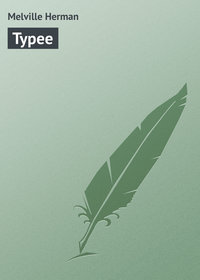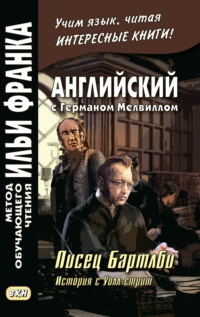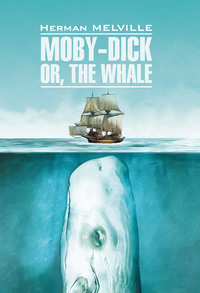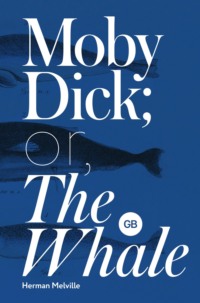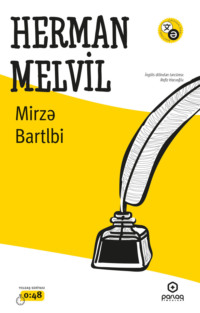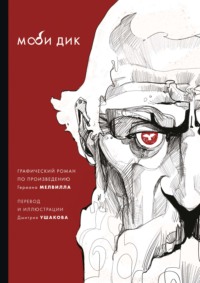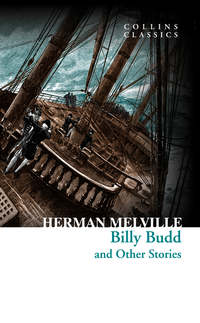 полная версия
полная версияPierre; or The Ambiguities
It was while seated solitary in his room one morning; his flagging faculties seeking a momentary respite; his head sideways turned toward the naked floor, following the seams in it, which, as wires, led straight from where he sat to the connecting door, and disappeared beneath it into the chamber of Isabel; that he started at a tap at that very door, followed by the wonted, low, sweet voice, —
"Pierre! a letter for thee – dost thou hear? a letter, – may I come in?"
At once he felt a dart of surprise and apprehension; for he was precisely in that general condition with respect to the outer world, that he could not reasonably look for any tidings but disastrous, or at least, unwelcome ones. He assented; and Isabel entered, holding out the billet in her hand.
"'Tis from some lady, Pierre; who can it be? – not thy mother though, of that I am certain; – the expression of her face, as seen by me, not at all answering to the expression of this handwriting here."
"My mother? from my mother?" muttered Pierre, in wild vacancy – "no! no! it can scarce be from her. – Oh, she writes no more, even in her own private tablets now! Death hath stolen the last leaf, and rubbed all out, to scribble his own ineffaceable hic jacet there!"
"Pierre!" cried Isabel, in affright.
"Give it me!" he shouted, vehemently, extending his hand. "Forgive me, sweet, sweet Isabel, I have wandered in my mind; this book makes me mad. There; I have it now" – in a tone of indifference – "now, leave me again. It is from some pretty aunt, or cousin, I suppose," carelessly balancing the letter in his hand.
Isabel quitted the room; the moment the door closed upon her, Pierre eagerly split open the letter, and read: —
II"This morning I vowed it, my own dearest, dearest Pierre I feel stronger to-day; for to-day I have still more thought of thine own superhuman, angelical strength; which so, has a very little been transferred to me. Oh, Pierre, Pierre, with what words shall I write thee now; – now, when still knowing nothing, yet something of thy secret I, as a seer, suspect. Grief, – deep, unspeakable grief, hath made me this seer. I could murder myself, Pierre, when I think of my previous blindness; but that only came from my swoon. It was horrible and most murdersome; but now I see thou wert right in being so instantaneous with me, and in never afterward writing to me, Pierre; yes, now I see it, and adore thee the more.
"Ah! thou too noble and angelical Pierre, now I feel that a being like thee, can possibly have no love as other men love; but thou lovest as angels do; not for thyself, but wholly for others. But still are we one, Pierre; thou art sacrificing thyself, and I hasten to re-tie myself to thee, that so I may catch thy fire, and all the ardent multitudinous arms of our common flames may embrace. I will ask of thee nothing, Pierre; thou shalt tell me no secret. Very right wert thou, Pierre, when, in that ride to the hills, thou wouldst not swear the fond, foolish oath I demanded. Very right, very right; now I see it.
"If then I solemnly vow, never to seek from thee any slightest thing which thou wouldst not willingly have me know; if ever I, in all outward actions, shall recognize, just as thou dost, the peculiar position of that mysterious, and ever-sacred being; – then, may I not come and live with thee? I will be no encumbrance to thee. I know just where thou art, and how thou art living; and only just there, Pierre, and only just so, is any further life endurable, or possible for me. She will never know – for thus far I am sure thou thyself hast never disclosed it to her what I once was to thee. Let it seem, as though I were some nun-like cousin immovably vowed to dwell with thee in thy strange exile. Show not to me, – never show more any visible conscious token of love. I will never to thee. Our mortal lives, oh, my heavenly Pierre, shall henceforth be one mute wooing of each other; with no declaration; no bridal; till we meet in the pure realms of God's final blessedness for us; – till we meet where the ever-interrupting and ever-marring world can not and shall not come; where all thy hidden, glorious unselfishness shall be gloriously revealed in the full splendor of that heavenly light; where, no more forced to these cruelest disguises, she, she too shall assume her own glorious place, nor take it hard, but rather feel the more blessed, when, there, thy sweet heart, shall be openly and unreservedly mine. Pierre, Pierre, my Pierre! – only this thought, this hope, this sublime faith now supports me. Well was it, that the swoon, in which thou didst leave me, that long eternity ago – well was it, dear Pierre, that though I came out of it to stare and grope, yet it was only to stare and grope, and then I swooned again, and then groped again, and then again swooned. But all this was vacancy; little I clutched; nothing I knew; 'twas less than a dream, my Pierre, I had no conscious thought of thee, love; but felt an utter blank, a vacancy; – for wert thou not then utterly gone from me? and what could there then be left of poor Lucy? – But now, this long, long swoon is past; I come out again into life and light; but how could I come out, how could I any way be, my Pierre, if not in thee? So the moment I came out of the long, long swoon, straightway came to me the immortal faith in thee, which though it could offer no one slightest possible argument of mere sense in thy behalf, yet was it only the more mysteriously imperative for that, my Pierre. Know then, dearest Pierre, that with every most glaring earthly reason to disbelieve in thy love; I do yet wholly give myself up to the unshakable belief in it. For I feel, that always is love love, and can not know change, Pierre; I feel that heaven hath called me to a wonderful office toward thee. By throwing me into that long, long swoon, – during which, Martha tells me, I hardly ate altogether, three ordinary meals, – by that, heaven, I feel now, was preparing me for the superhuman office I speak of; was wholly estranging me from this earth, even while I yet lingered in it; was fitting me for a celestial mission in terrestrial elements. Oh, give to me of thine own dear strength! I am but a poor weak girl, dear Pierre; one that didst once love thee but too fondly, and with earthly frailty. But now I shall be wafted far upward from that; shall soar up to thee, where thou sittest in thine own calm, sublime heaven of heroism.
"Oh seek not to dissuade me, Pierre. Wouldst thou slay me, and slay me a million times more? and never have done with murdering me? I must come! I must come! God himself can not stay me, for it is He that commands me. – I know all that will follow my flight to thee; – my amazed mother, my enraged brothers, the whole taunting and despising world. – But thou art my mother and my brothers, and all the world, and all heaven, and all the universe to me – thou art my Pierre. One only being does this soul in me serve – and that is thee, Pierre. – So I am coming to thee, Pierre, and quickly; – to-morrow it shall be, and never more will I quit thee, Pierre. Speak thou immediately to her about me; thou shalt know best what to say. Is there not some connection between our families, Pierre? I have heard my mother sometimes trace such a thing out, – some indirect cousinship. If thou approvest then, thou shalt say to her, I am thy cousin, Pierre; – thy resolved and immovable nun-like cousin; vowed to dwell with thee forever; to serve thee and her, to guard thee and her without end. Prepare some little corner for me somewhere; but let it be very near. Ere I come, I shall send a few little things, – the tools I shall work by, Pierre, and so contribute to the welfare of all. Look for me then. I am coming! I am coming, my Pierre; for a deep, deep voice assures me, that all noble as thou art, Pierre, some terrible jeopardy involves thee, which my continual presence only can drive away. I am coming! I am coming!"
LUCY.
IIIWHEN surrounded by the base and mercenary crew, man, too long wonted to eye his race with a suspicious disdain, suddenly is brushed by some angelical plume of humanity, and the human accents of superhuman love, and the human eyes of superhuman beauty and glory, suddenly burst on his being; then how wonderful and fearful the shock! It is as if the sky-cope were rent, and from the black valley of Jehoshaphat, he caught upper glimpses of the seraphim in the visible act of adoring.
He held the artless, angelical letter in his unrealizing hand; he started, and gazed round his room, and out at the window, commanding the bare, desolate, all-forbidding quadrangle, and then asked himself whether this was the place that an angel should choose for its visit to earth. Then he felt a vast, out-swelling triumphantness, that the girl whose rare merits his intuitive soul had once so clearly and passionately discerned, should indeed, in this most tremendous of all trials, have acquitted herself with such infinite majesty. Then again, he sunk utterly down from her, as in a bottomless gulf, and ran shuddering through hideous galleries of despair, in pursuit of some vague, white shape, and lo! two unfathomable dark eyes met his, and Isabel stood mutely and mournfully, yet all-ravishingly before him.
He started up from his plank; cast off his manifold wrappings, and crossed the floor to remove himself from the spot, where such sweet, such sublime, such terrific revelations had been made him.
Then a timid little rap was heard at the door.
"Pierre, Pierre; now that thou art risen, may I not come in – just for a moment, Pierre."
"Come in, Isabel."
She was approaching him in her wonted most strange and sweetly mournful manner, when he retreated a step from her, and held out his arm, not seemingly to invite, but rather as if to warn.
She looked fixedly in his face, and stood rooted.
"Isabel, another is coming to me. Thou dost not speak, Isabel. She is coming to dwell with us so long as we live, Isabel. Wilt thou not speak?"
The girl still stood rooted; the eyes, which she had first fixed on him, still remained wide-openly riveted.
"Wilt thou not speak, Isabel?" said Pierre, terrified at her frozen, immovable aspect, yet too terrified to manifest his own terror to her; and still coming slowly near her. She slightly raised one arm, as if to grasp some support; then turned her head slowly sideways toward the door by which she had entered; then her dry lips slowly parted – "My bed; lay me; lay me!"
The verbal effort broke her stiffening enchantment of frost; her thawed form sloped sidelong into the air; but Pierre caught her, and bore her into her own chamber, and laid her there on the bed.
"Fan me; fan me!"
He fanned the fainting flame of her life; by-and-by she turned slowly toward him.
"Oh! that feminine word from thy mouth, dear Pierre: – that she, that she!"
Pierre sat silent, fanning her.
"Oh, I want none in the world but thee, my brother – but thee, but thee! and, oh God! am I not enough for thee? Bare earth with my brother were all heaven for me; but all my life, all my full soul, contents not my brother."
Pierre spoke not; he but listened; a terrible, burning curiosity was in him, that made him as heartless. But still all that she had said thus far was ambiguous.
"Had I known – had I but known it before! Oh bitterly cruel to reveal it now. That she! That she!"
She raised herself suddenly, and almost fiercely confronted him.
"Either thou hast told thy secret, or she is not worthy the commonest love of man! Speak Pierre, – which?"
"The secret is still a secret, Isabel."
"Then is she worthless, Pierre, whoever she be – foolishly, madly fond! – Doth not the world know me for thy wife? – She shall not come! 'Twere a foul blot on thee and me. She shall not come! One look from me shall murder her, Pierre!"
"This is madness, Isabel. Look: now reason with me. Did I not before opening the letter, say to thee, that doubtless it was from some pretty young aunt or cousin?"
"Speak quick! – a cousin?"
"A cousin, Isabel."
"Yet, yet, that is not wholly out of the degree, I have heard. Tell me more, and quicker! more! more!"
"A very strange cousin, Isabel; almost a nun in her notions. Hearing of our mysterious exile, she, without knowing the cause, hath yet as mysteriously vowed herself ours – not so much mine, Isabel, as ours, ours– to serve us; and by some sweet heavenly fancying, to guide us and guard us here."
"Then, possibly, it may be all very well, Pierre, my brother – my brother– I can say that now?"
"Any, – all words are thine, Isabel; words and worlds with all their containings, shall be slaves to thee, Isabel."
She looked eagerly and inquiringly at him; then dropped her eyes, and touched his hand; then gazed again. "Speak so more to me, Pierre! Thou art my brother; art thou not my brother? – But tell me now more of – her; it is all newness, and utter strangeness to me, Pierre."
"I have said, my sweetest sister, that she has this wild, nun-like notion in her. She is willful in it; in this letter she vows she must and will come, and nothing on earth shall stay her. Do not have any sisterly jealousy, then, my sister. Thou wilt find her a most gentle, unobtrusive, ministering girl, Isabel. She will never name the not-to-be-named things to thee; nor hint of them; because she knows them not. Still, without knowing the secret, she yet hath the vague, unspecializing sensation of the secret – the mystical presentiment, somehow, of the secret. And her divineness hath drowned all womanly curiosity in her; so that she desires not, in any way, to verify the presentiment; content with the vague presentiment only; for in that, she thinks, the heavenly summons to come to us, lies; – even there, in that, Isabel. Dost thou now comprehend me?"
"I comprehend nothing, Pierre; there is nothing these eyes have ever looked upon, Pierre, that this soul comprehended. Ever, as now, do I go all a-grope amid the wide mysteriousness of things. Yes, she shall come; it is only one mystery the more. Doth she talk in her sleep, Pierre? Would it be well, if I slept with her, my brother?"
"On thy account; wishful for thy sake; to leave thee incommoded; and – and – not knowing precisely how things really are; – she probably anticipates and desires otherwise, my sister."
She gazed steadfastly at his outwardly firm, but not interiorly unfaltering aspect; and then dropped her glance in silence.
"Yes, she shall come, my brother; she shall come. But it weaves its thread into the general riddle, my brother. – Hath she that which they call the memory, Pierre; the memory? Hath she that?"
"We all have the memory, my sister."
"Not all! not all! – poor Bell hath but very little. Pierre! I have seen her in some dream. She is fair-haired – blue eyes – she is not quite so tall as I, yet a very little slighter."
Pierre started. "Thou hast seen Lucy Tartan, at Saddle Meadows?"
"Is Lucy Tartan the name? – Perhaps, perhaps; – but also, in the dream, Pierre; she came, with her blue eyes turned beseechingly on me; she seemed as if persuading me from thee; – methought she was then more than thy cousin; – methought she was that good angel, which some say, hovers over every human soul; and methought – oh, methought that I was thy other, – thy other angel, Pierre. Look: see these eyes, – this hair – nay, this cheek; – all dark, dark, dark, – and she – the blue-eyed – the fair-haired – oh, once the red-cheeked!"
She tossed her ebon tresses over her; she fixed her ebon eyes on him.
"Say, Pierre; doth not a funerealness invest me? Was ever hearse so plumed? – Oh, God! that I had been born with blue eyes, and fair hair! Those make the livery of heaven! Heard ye ever yet of a good angel with dark eyes, Pierre? – no, no, no – all blue, blue, blue – heaven's own blue – the clear, vivid, unspeakable blue, which we see in June skies, when all clouds are swept by. – But the good angel shall come to thee, Pierre. Then both will be close by thee, my brother; and thou mayest perhaps elect, – elect! – She shall come; she shall come. – When is it to be, dear Pierre?"
"To-morrow, Isabel. So it is here written."
She fixed her eye on the crumpled billet in his hand. "It were vile to ask, but not wrong to suppose the asking. – Pierre, – no, I need not say it, – wouldst thou?"
"No; I would not let thee read it, my sister; I would not; because I have no right to – no right – no right; – that is it; no: I have no right. I will burn it this instant, Isabel."
He stepped from her into the adjoining room; threw the billet into the stove, and watching its last ashes, returned to Isabel.
She looked with endless intimations upon him.
"It is burnt, but not consumed; it is gone, but not lost. Through stove, pipe, and flue, it hath mounted in flame, and gone as a scroll to heaven! It shall appear again, my brother. – Woe is me – woe, woe! – woe is me, oh, woe! Do not speak to me, Pierre; leave me now. She shall come. The Bad angel shall tend the Good; she shall dwell with us, Pierre. Mistrust me not; her considerateness to me, shall be outdone by mine to her. – Let me be alone now, my brother."
IVTHOUGH by the unexpected petition to enter his privacy – a petition he could scarce ever deny to Isabel, since she so religiously abstained from preferring it, unless for some very reasonable cause, Pierre, in the midst of those conflicting, secondary emotions, immediately following the first wonderful effect of Lucy's strange letter, had been forced to put on, toward Isabel, some air of assurance and understanding concerning its contents; yet at bottom, he was still a prey to all manner of devouring mysteries.
Soon, now, as he left the chamber of Isabel, these mysteriousnesses re-mastered him completely; and as he mechanically sat down in the dining-room chair, gently offered him by Delly – for the silent girl saw that some strangeness that sought stillness was in him; – Pierre's mind was revolving how it was possible, or any way conceivable, that Lucy should have been inspired with such seemingly wonderful presentiments of something assumed, or disguising, or non-substantial, somewhere and somehow, in his present most singular apparent position in the eye of world. The wild words of Isabel yet rang in his ears. It were an outrage upon all womanhood to imagine that Lucy, however yet devoted to him in her hidden heart, should be willing to come to him, so long as she supposed, with the rest of the world, that Pierre was an ordinarily married man. But how – what possible reason – what possible intimation could she have had to suspect the contrary, or to suspect any thing unsound? For neither at this present time, nor at any subsequent period, did Pierre, or could Pierre, possibly imagine that in her marvelous presentiments of Love she had any definite conceit of the precise nature of the secret which so unrevealingly and enchantedly wrapt him. But a peculiar thought passingly recurred to him here.
Within his social recollections there was a very remarkable case of a youth, who, while all but affianced to a beautiful girl – one returning his own throbbings with incipient passion – became somehow casually and momentarily betrayed into an imprudent manifested tenderness toward a second lady; or else, that second lady's deeply-concerned friends caused it to be made known to the poor youth, that such committal tenderness toward her he had displayed, nor had it failed to exert its natural effect upon her; certain it is, this second lady drooped and drooped, and came nigh to dying, all the while raving of the cruel infidelity of her supposed lover; so that those agonizing appeals, from so really lovely a girl, that seemed dying of grief for him, at last so moved the youth, that – morbidly disregardful of the fact, that inasmuch as two ladies claimed him, the prior lady had the best title to his hand – his conscience insanely upbraided him concerning the second lady; he thought that eternal woe would surely overtake him both here and hereafter if he did not renounce his first love – terrible as the effort would be both to him and her – and wed with the second lady; which he accordingly did; while, through his whole subsequent life, delicacy and honor toward his thus wedded wife, forbade that by explaining to his first love how it was with him in this matter, he should tranquilize her heart; and, therefore, in her complete ignorance, she believed that he was willfully and heartlessly false to her; and so came to a lunatic's death on his account.
This strange story of real life, Pierre knew to be also familiar to Lucy; for they had several times conversed upon it; and the first love of the demented youth had been a school-mate of Lucy's, and Lucy had counted upon standing up with her as bridesmaid. Now, the passing idea was self-suggested to Pierre, whether into Lucy's mind some such conceit as this, concerning himself and Isabel, might not possibly have stolen. But then again such a supposition proved wholly untenable in the end; for it did by no means suffice for a satisfactory solution of the absolute motive of the extraordinary proposed step of Lucy; nor indeed by any ordinary law of propriety, did it at all seem to justify that step. Therefore, he know not what to think; hardly what to dream. Wonders, nay, downright miracles and no less were sung about Love; but here was the absolute miracle itself – the out-acted miracle. For infallibly certain he inwardly felt, that whatever her strange conceit; whatever her enigmatical delusion; whatever her most secret and inexplicable motive; still Lucy in her own virgin heart remained transparently immaculate, without shadow of flaw or vein. Nevertheless, what inconceivable conduct this was in her, which she in her letter so passionately proposed! Altogether, it amazed him; it confounded him.
Now, that vague, fearful feeling stole into him, that, rail as all atheists will, there is a mysterious, inscrutable divineness in the world – a God – a Being positively present everywhere; – nay, He is now in this room; the air did part when I here sat down. I displaced the Spirit then – condensed it a little off from this spot. He looked apprehensively around him; he felt overjoyed at the sight of the humanness of Delly.
While he was thus plunged into this mysteriousness, a knock was heard at the door.
Delly hesitatingly rose – "Shall I let any one in, sir? – I think it is Mr. Millthorpe's knock."
"Go and see – go and see" – said Pierre, vacantly.
The moment the door was opened, Millthorpe – for it was he – catching a glimpse of Pierre's seated form, brushed past Delly, and loudly entered the room.
"Ha, ha! well, my boy, how comes on the Inferno? That is it you are writing; one is apt to look black while writing Infernoes; you always loved Dante. My lad! I have finished ten metaphysical treatises; argued five cases before the court; attended all our society's meetings; accompanied our great Professor, Monsieur Volvoon, the lecturer, through his circuit in the philosophical saloons, sharing all the honors of his illustrious triumph; and by the way, let me tell you, Volvoon secretly gives me even more credit than is my due; for 'pon my soul, I did not help write more than one half, at most, of his Lectures; edited – anonymously, though – a learned, scientific work on 'The Precise Cause of the Modifications in the Undulatory Motion in Waves,' a posthumous work of a poor fellow – fine lad he was, too – a friend of mine. Yes, here I have been doing all this, while you still are hammering away at that one poor plaguy Inferno! Oh, there's a secret in dispatching these things; patience! patience! you will yet learn the secret. Time! time! I can't teach it to you, my boy, but Time can: I wish I could, but I can't."
There was another knock at the door.
"Oh!" cried Millthorpe, suddenly turning round to it, "I forgot, my boy. I came to tell you that there is a porter, with some queer things, inquiring for you. I happened to meet him down stairs in the corridors, and I told him to follow me up – I would show him the road; here he is; let him in, let him in, good Delly, my girl."
Thus far, the rattlings of Millthorpe, if producing any effect at all, had but stunned the averted Pierre. But now he started to his feet. A man with his hat on, stood in the door, holding an easel before him.
"Is this Mr. Glendinning's room, gentlemen?"
"Oh, come in, come in," cried Millthorpe, "all right."


